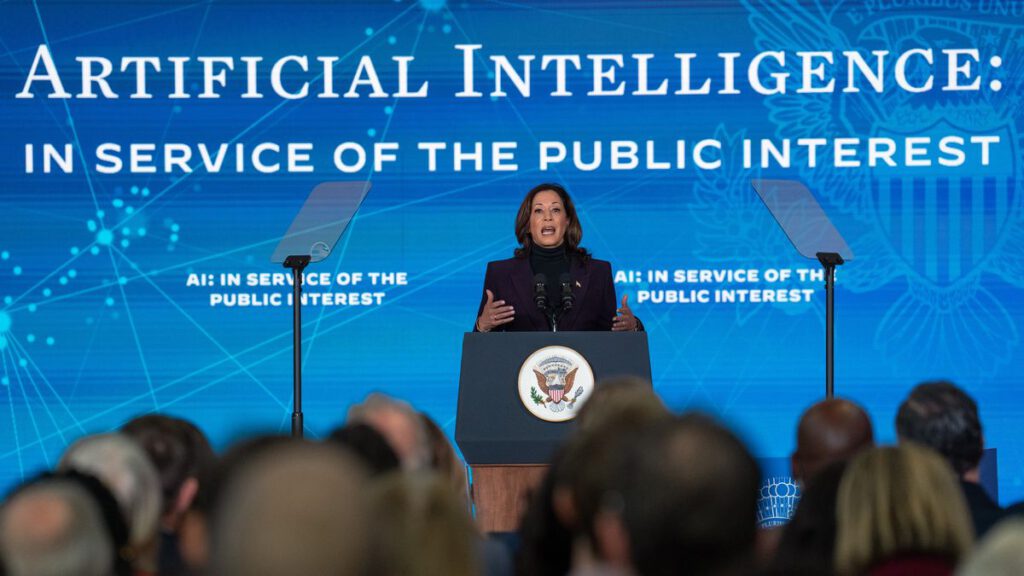Joe Biden has withdrawn from the Democratic presidential nomination, leaving the party’s nominee position vacant and leaving many questions unanswered about the candidate’s technology policy platform.
President Biden’s departure has brought new candidates to the forefront: current Vice President Kamala Harris is the most likely successor, but other candidates such as California Governor Gavin Newsom and Michigan Governor Gretchen Whitmer have also been widely reported in the media.
Most of the names that come up in conversation are people who have something to say or do about the tech industry, from AI regulation to the U.S. semiconductor industry.
Harris, for example, began her career as district attorney in San Francisco, the tech hub of Silicon Valley, and has been endorsed by a range of industry figures following Biden’s move.
“In the fight for democracy in November, I wholeheartedly support Kamala Harris and her candidacy for president of the United States,” LinkedIn co-founder Reid Hoffman said in a post on X.
As part of the 2020 presidential campaign, Harris participated in a question-and-answer series with The New York Times along with 20 other Democratic presidential candidates.
Asked whether big tech companies like Facebook, Amazon and Google should be broken up, something some of her rivals have voiced support for, Harris refrained from answering, instead calling for greater protections for individuals.
“I believe that tech companies should be regulated in a way that we can have assurances, that American consumers can have confidence that their privacy will not be violated.”
Since taking office as vice president, Harris has repeatedly spoken publicly about regulating AI development.
“President Biden and I reject the false choice that we must make between protecting our people and promoting innovation. We can and must do both,” Harris said in a speech at the U.S. Embassy in London.
“As leaders from governments, civil society and the private sector, let us work together to build a future where AI creates opportunity, promotes fairness, and protects fundamental freedoms and rights,” she added.
During the same speech, Harris commented on an executive order passed by Biden earlier that year, describing it as “a first step toward a safer AI future.” The order required developers and government agencies to create their own standards aimed at promoting ethical AI development.
Governors Newsom and Whitmer are making moves in the tech sector
California’s current governor, Gavin Newsom, is a tech powerhouse and has deep ties to the tech industry, for example, speaking to Politico earlier this year warning against overregulating AI.
“We don’t want to cede this site to another state or country,” Governor Newsom said at an event in San Francisco.
“If we over-regulate, if we over-indulge, if we chase the shiny things, we put ourselves in a dangerous position,” he added.
Governor Newsom signed an executive order on regulating AI in California in 2023, saying his office was balancing the benefits and drawbacks of AI and taking a “calm and humble approach to this world-changing technology.”
In June 2024, Governor Whitmer announced a $10 million investment in Michigan’s semiconductor manufacturing industry to develop the state’s tech talent. In 2023, she signed a bill that requires political campaigns to clearly label election ads using AI technology to prevent the spread of misinformation.
“But we expect this won’t be the last step in protecting voters from AI,” Michigan Secretary of State Jocelyn Benson told Michigan Public. “This is just an important first step that puts Michigan at the forefront, as one of only five states that already have these protections in place.”

